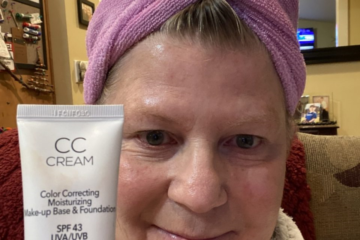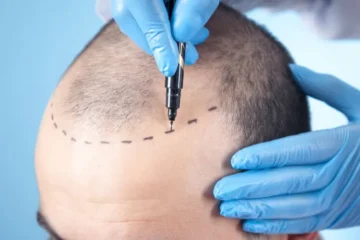Hair loss is a common concern that affects millions of people worldwide. It can be caused by various factors, including genetics, hormonal imbalances, stress, and nutritional deficiencies. One of the primary hormones linked to hair loss, especially in men, is dihydrotestosterone (DHT). DHT is a derivative of testosterone and plays a significant role in hair follicle shrinkage, leading to hair loss. Fortunately, there are several effective DHT blockers available that can help prevent hair loss and promote hair growth. In this article, we will explore the best DHT blockers and how they can be used to combat hair loss.
Understanding DHT and Hair Loss
Before diving into the solutions, it’s important to understand the role of DHT in hair loss. DHT binds to receptors in hair follicles, particularly in areas prone to balding like the forehead and crown. Over time, this binding can weaken hair follicles, making them unable to support healthy hair growth, leading to thinning hair and eventual hair loss. By blocking the production or effects of DHT, it’s possible to slow down or even reverse hair loss.
Natural DHT Blockers
1 Saw Palmetto
Saw palmetto is a natural herb that has been shown to effectively block DHT. It works by inhibiting the enzyme 5-alpha reductase, which is responsible for converting testosterone into DHT. Studies have suggested that saw palmetto can reduce hair loss and promote hair regrowth in individuals experiencing male and female pattern baldness.
2 Pumpkin Seed Oil
Pumpkin seed oil is another natural remedy that has gained popularity for its DHT-blocking capabilities. Rich in zinc and phytosterols, pumpkin seed oil can help reduce the action of 5-alpha reductase, thereby decreasing DHT levels. Research indicates that supplementation with pumpkin seed oil can lead to significant improvements in hair growth.
3 Green Tea
Green tea, particularly its active component epigallocatechin gallate (EGCG), has been found to inhibit the production of DHT, making it a beneficial beverage for those looking to prevent hair loss. Regular consumption of green tea or applying it directly to the scalp may help strengthen hair follicles and stimulate hair growth.
Pharmaceutical DHT Blockers
1 Finasteride
Finasteride, sold under brand names like Propecia, is a prescription medication that specifically targets the 5-alpha reductase enzyme, preventing the conversion of testosterone to DHT. It’s one of the most studied and effective treatments for male pattern baldness, with many users experiencing a halt in hair loss and even regrowth in some cases.
2 Minoxidil
Although not in the traditional sense, Minoxidil is worth mentioning because of its effectiveness in promoting hair growth. It works by widening blood vessels, improving blood flow to hair follicles, and increasing follicular size and hair shaft diameter. Minoxidil is available over the counter and can be used by both men and women.
Topical DHT Blockers
1 Ketoconazole Shampoo
Ketoconazole is an antifungal agent found in some medicated shampoos that has been shown to have mild DHT-blocking properties when applied topically. It’s believed to work by reducing scalp DHT levels and has the added benefit of treating dandruff, which can also contribute to hair loss.
2 Essential Oils
Certain essential oils, such as rosemary and peppermint, have been found to possess DHT-blocking properties when applied to the scalp. These oils can stimulate blood circulation and promote hair growth while potentially inhibiting DHT production.
Lifestyle Changes to Reduce DHT
In addition to specific DHT blockers, making lifestyle changes can also help reduce DHT levels. This includes maintaining a healthy diet rich in vitamins and minerals, managing stress through relaxation techniques, and avoiding hairstyles that pull on the hair.
Conclusion
Hair loss can be a distressing condition, but understanding the role of DHT and utilizing effective DHT blockers can offer hope for those seeking to prevent or reverse it. Whether through natural remedies, pharmaceuticals, topical treatments, or lifestyle changes, there are several strategies to combat hair loss. It’s important to consult with a healthcare professional before starting any new treatment to ensure it’s suitable for your specific situation. With the right approach, reducing DHT levels can be a key step in achieving healthier, fuller hair.



